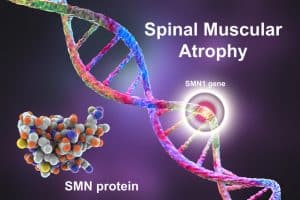
Government gets £74m rebate from pharma
pharmafile | June 30, 2014 | News story | Sales and Marketing | ABPI, Hunt, NHS, PPRS, VBP, emms, pricing
The UK government has received a £74 million refund from the pharma industry after it was deemed to have spent too much on patented medicines.
The repayment is the first under an onerous new drug pricing arrangement for the industry known as the Pharmaceutical Price Regulation Scheme (PPRS), which from 1 January this year mandates that pharma can only grow by a certain amount.
Under this set up UK pharma firms must keep NHS spend on branded medicines flat for two years, and keep the growth rate below 2% for a further three years.
The industry will make payments to the Department of Health if NHS spending on branded medicines exceeds the allowed growth rate. This new payment accounts for the first three months of 2014 and in this case amounts to £74 million.
In a fairly complex scheme, the payments are based on the difference between the allowed percentage growth (which for 2014 is flat) and the actual percentage growth in how much the NHS spends on branded medicines.
The current branded drugs bill for the NHS is £12 billion and must remain so until 2016, when it can grow marginally higher.
When the deal was struck late last year many firms, notably smaller pharma companies, complained bitterly about these repayments, saying it could land them in serious financial trouble if they were not allowed to grow.
Not everyone signed up to the PPRS scheme however, with a small number of companies choosing instead to be put into a statutory scheme.
The statutory deal is even more onerous to those within it, as it effectively enforces a 15% price cut on their products. It has not been made public which companies are operating under this scheme.
Speaking to Pharmafile Jonathan Emms, the new president of the ABPI, says the PPRS deal was the best the lobby group could get from the government. “We did the deal with our eyes open,” he explains. “I think it was the best option in the circumstances, we signed up to it, and we’ve got to live with the consequences of what we’ve done.”
He goes on: “We know where we are with this [the PPRS] – the deal is done, and I think there is an opportunity now, given that the industry has underwritten the branded medicines budget, to make sure that we direct this in a way to make sure the right patients get the right drugs at the right time.
“We will work with government, the Department of Health and NHS England to really ensure that that happens. We are where we are, and I think we’ve got to see the opportunity moving forward.” He adds, however, that there is still ‘more work to be done’.
Ben Adams
Related Content

Digital mental health technologies – a valuable tool in supporting people with depression and anxiety
The potential benefits of digital mental health technology for managing depression, anxiety and stress, together …

A community-first future: which pathways will get us there?
In the final Gateway to Local Adoption article of 2025, Visions4Health caught up with Julian …

The Pharma Files: with Dr Ewen Cameron, Chief Executive of West Suffolk NHS Foundation Trust
Pharmafile chats with Dr Ewen Cameron, Chief Executive of West Suffolk NHS Foundation Trust, about …





